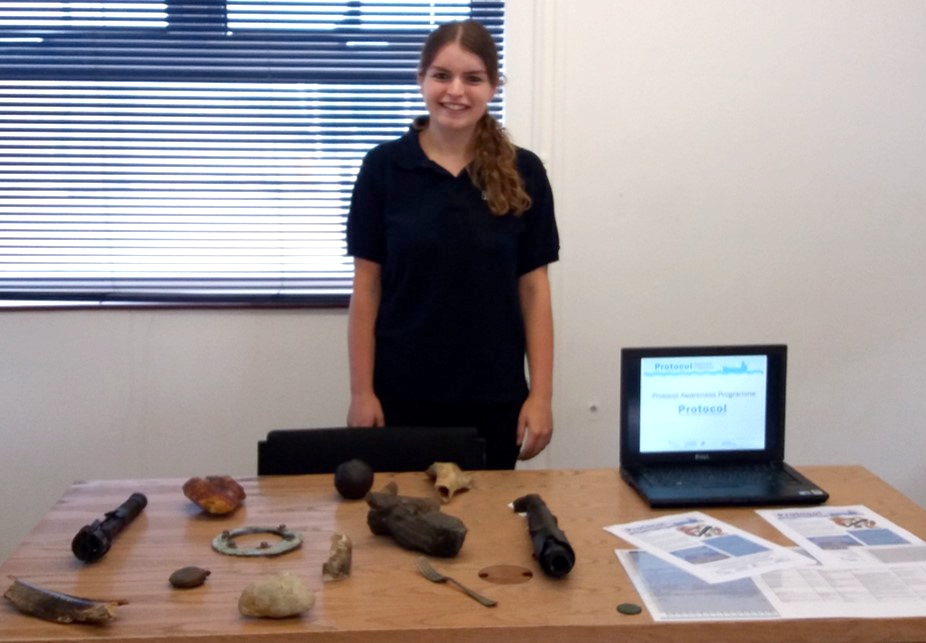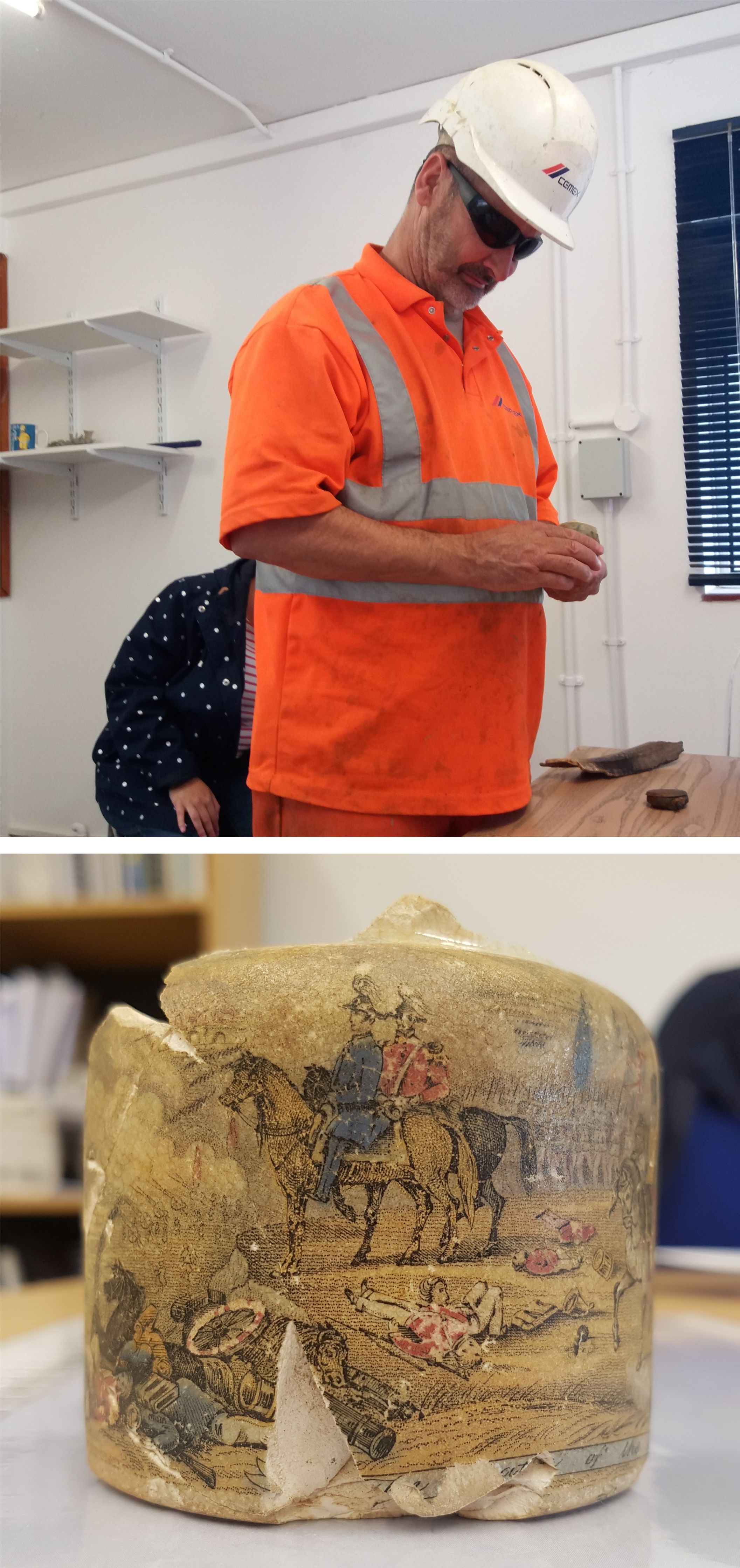The offshore dredging industry provides around 20% of the aggregate needed for construction projects across the UK and although all dredging areas are assessed for archaeological potential prior to the granting of the licence, archaeological finds may still be encountered. The dredging process involves extracting sands and gravels from the sea floor and transporting the material in cargos to individual wharves where it is processed for use in the construction industry. As part of the Marine Aggregate Industry Archaeological Protocol, Wessex Archaeology collaborate with Brett Aggregates Ltd, CEMEX UK Materials Ltd, Lafarge Tarmac Ltd, Hanson Aggregates and Kendall Bros Ltd who have UK based wharves as well as international ones.
Every year, members of the Coastal & Marine section visit these wharves to discuss and promote the Protocol. As a team, we believe that the success of the Protocol is maintained through our close relationships with the wharves and the face to face interaction that occurs during our visits.

So far this year, Lowri has visited the following wharves:
- Brett Aggregates Ltd, Cliffe Wharf, Kent;
- CEMEX UK Materials Ltd, Wessex Wharf, Poole;
- Tarmac Limited, Burnley Wharf, Southampton;
- CEMEX UK Materials Ltd, Northfleet Wharf, Kent;
- CEMEX UK Materials Ltd, Brighton Wharf, West Sussex; and
- Brett Aggregates Ltd, Ipswich Port, Suffolk.
During these visits, we give a short presentation to wharf staff and discuss the different types of archaeological material that may be encountered as well as how it may reach the marine environment. We also bring a collection of finds with us to demonstrate the variety of artefacts that have been reported since the Protocol was first implemented in 2005 so that they know what sort of things to look out for.

We have enjoyed hearing stories of objects that have been found by individuals who have attended these talks over the years and it is great to see some of the finders reunited with their finds! During the Brighton Wharf visit, Michael Pettitt (pictured) was reunited with the beautiful relish pot that he found and reported in 2009. The pot depicted battle scenes from a Napoleonic period. A partial inscription reads ‘the battle of the A…’ with the final word being missing except for the first letter ‘A’. Looking at Napoleonic Battles with a name beginning with an ‘A’ only 11 examples exist and of this only one battle has ‘the’ before the place name. This is the Battle of la Albuera, which was a small Spanish village where a mixed force of Spanish, Portuguese and British corps faced elements of the French Army of the South on the 16 May 1811. Both sides faced heavy casualties but the French Army was eventually forced to retreat.
This year, we have received some great feedback and suggestions from wharf staff that will help in making the Protocol an even bigger success. As a team, we would like to thank all the wharves we have visited this year for your enthusiasm and making the experience a very enjoyable one for us. You are all amazing, keep up the good work!